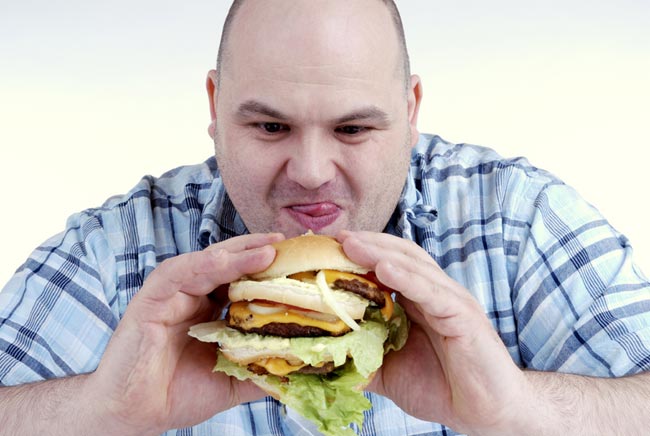How to Quit Nervous Habits

Get the world’s most fascinating discoveries delivered straight to your inbox.
You are now subscribed
Your newsletter sign-up was successful
Want to add more newsletters?

Delivered Daily
Daily Newsletter
Sign up for the latest discoveries, groundbreaking research and fascinating breakthroughs that impact you and the wider world direct to your inbox.

Once a week
Life's Little Mysteries
Feed your curiosity with an exclusive mystery every week, solved with science and delivered direct to your inbox before it's seen anywhere else.

Once a week
How It Works
Sign up to our free science & technology newsletter for your weekly fix of fascinating articles, quick quizzes, amazing images, and more

Delivered daily
Space.com Newsletter
Breaking space news, the latest updates on rocket launches, skywatching events and more!

Once a month
Watch This Space
Sign up to our monthly entertainment newsletter to keep up with all our coverage of the latest sci-fi and space movies, tv shows, games and books.

Once a week
Night Sky This Week
Discover this week's must-see night sky events, moon phases, and stunning astrophotos. Sign up for our skywatching newsletter and explore the universe with us!
Join the club
Get full access to premium articles, exclusive features and a growing list of member rewards.
You know you shouldn't, but you just can't help it.
Whether it's nail-biting, thumb-sucking or overeating, nervous habits plague many individuals, who just can't seem to stop. But why do we engage in these behaviors, and can they have detrimental effects?
Here's a look at some of the most common compulsions, as well as ways to make 2010 the year you really quit biting your nails — or quit whatever bad habit you're saddled with.
Not always nerves
Despite the perception of these habits as behaviors set off when we're nervous or stressed, they can occur at any time, depending on the individual. People may engage in them when they're bored, relaxed, by themselves or watching TV.
People likely continue these habits because they receive some satisfaction from the behavior.
"Any habit that is perpetuated is rewarded," said Carol Goldberg, a psychologist in New York City. "So in some way it makes them feel more relaxed, or it gives them something else — if it weren't rewarded they wouldn't keep doing it, so they're getting something from it."
Get the world’s most fascinating discoveries delivered straight to your inbox.
Among the motivations:
- Nail-biting: By far, this is the most common nervous habit, affecting about a third of young children, 44 percent of teenagers and 19 percent to 29 percent of adults, according to psychologist Penny Donnenfeld, who has a private practice in New York City. The urge to gnaw may be "an outgrowth of things that were self-soothing in childhood," Donnenfeld said. She added that babies are very mouth oriented, and so the prevalence of the habit in toddlers and young children could be some leftover urge from infanthood. And the habit can even start from copying someone else, said Goldberg, who has seen children begin biting their nails after observing a popular classmate do it.
- Thumb-sucking: Babies are born with the impulse to suck anything in their mouth, a reflex that enables them to breastfeed. While many children will continue to suck their thumbs until they are about 2 to 4 years old, most grow out of it on their own.
- Overeating: People overeat for all sorts of reasons, including anxiety, frustration, or feelings of emptiness. Sometimes people turn to eating as a way to self-medicate, since certain foods can promote feelings of happiness, Donnenfeld said.
- Smoking: More than just a mild habit, smoking can be physically addictive, with frequent users becoming dependent on the drug nicotine. The drug causes changes in the levels of certain brain chemicals, resulting in feelings of calm and pleasure, which smokers can come to crave.
The dangers
These seemingly harmless actions can have adverse consequences.
For instance, biting your nails can be unsanitary and spread germs, Goldberg said. "From that point of view, of catching something, having your dirty fingernails in your mouth is not a very good idea," she said.
Nail-biters may also be judged negatively by others. "Socially, it doesn't look nice," Goldberg said. "If you bite your nails, it doesn't show you off as well."
Thumb-sucking is not without risk either. If children don't give up the habit by the time their permanent teeth come in, it can cause oral problems, including misalignment of teeth and changes in the roof of the mouth, according to the American Dental Association.
The health problems of overeating and smoking are more widely known. Eating too much can lead to obesity, which has been associated with many medical conditions, including diabetes, heart disease and cancer. Smoking also increases the risk of diseases such as lung cancer, stroke and heart attack.
How to quit
While it may not be easy, kicking nervous habits is definitely possible, psychologists say. The first step: You have to want to quit, Goldberg said. Once you've decided to give it up, you can either go cold turkey, without any assistance, or you can use aids and tricks to help you.
Nail-biters may wear gloves or keep their hands in their pockets, Goldberg said. And finding other activities to occupy your hands, such as knitting or squeezing a stress ball, may help, Donnenfeld suggests.
It is also important to identify when you start the biting or sucking, since many engage without noticing, "Once you get a sense of that, you can begin to track when it's happening and work to interfere with it as sort of an automatic type behavior," Donnenfeld said.
Tackling overeating is a bit more challenging. "You can live without biting your nails, but you have to eat food," said Goldberg. "So food is something where you have to be able to exert control in terms of not letting the amount become overwhelming."
Habits like smoking may require the assistance of patches and gums that are intended to wean you off nicotine, the addictive substance in cigarettes. Changing your routine may work as well. "If you're used to smoking when you have a cup of coffee, maybe skip your cup of coffee," Donnenfeld said.
While the ultimate goal should be changing your behavior, it is important to have intermediate goals along the way, Donnenfeld said.
"I can't say, 'I'm never going to bite my fingernails again.' What I might say to begin with is, 'I'm going to notice each time I put my fingers in my mouth, and I'm going to take them out,'" she said.
And you shouldn't look at one slip up as meaning that quitting is futile, she said. "If you eat a donut it doesn't mean that you should just eat whatever you want the next day because it doesn't matter anyway. At any point along the way you can make the decision to stop the behavior."
- Never Too Late: 5 Bad Habits You Should Still Quit
- What Really Scares People: Top 10 Phobias
- Top 10 New Year's Resolutions to Keep You Alive

Rachael is a Live Science contributor, and was a former channel editor and senior writer for Live Science between 2010 and 2022. She has a master's degree in journalism from New York University's Science, Health and Environmental Reporting Program. She also holds a B.S. in molecular biology and an M.S. in biology from the University of California, San Diego. Her work has appeared in Scienceline, The Washington Post and Scientific American.
 Live Science Plus
Live Science Plus










